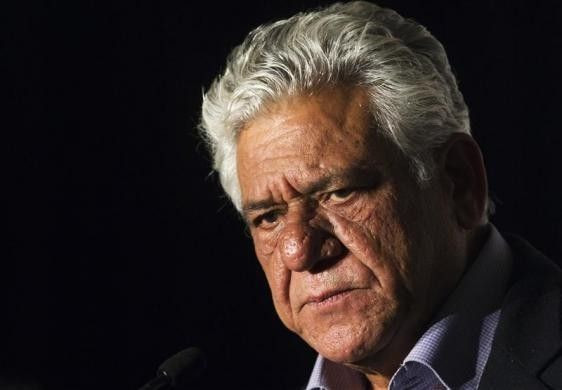Om Puri: India’s Most Famous Actor Calls For Better Relations With Pakistan, End To Propaganda Films

Leading Indian film actor Om Puri, while visiting the Pakistani city of Lahore, has implored Indian authorities to lift the ban on broadcasting Pakistani television programs in the country. Puri, now 65 and the star of scores of movies, also vowed that he will not appear in any more films or TV programs that denigrate Pakistan, while calling for the cinema communities in both countries to cease producing propaganda against each other. Appearing at a press conference with Indian actress Divya Dutta, Puri admitted that he has performed in films that berated Pakistan, including ‘Gadar: Ek Prem Katha,’ a hugely successful film set during the 1947 Partition that Puri narrated. Puri and Dutta are in Lahore to perform in a play called “Teri Amrita.”
Puri also complained that while Bollywood has improved on its technology and filmmaking over the years, “hardcore social and political films are missing from the Indian scene.” Puri further condemned the Indian government for banning Pakistani TV channels in the country, citing that it was unfair since Pakistan has no such ban on Indian programming. Indeed, Indian TV channels like Star Plus and Zee TV are widely available and highly popular in Pakistan, but India does not reciprocate with Pakistani programming. “I would like to tell my government that this is not how we should respond to such gestures of goodwill from Pakistan,” he stated. “The Indian government should allow Pakistani movies and TV channels in the country,” he said.
Puri said he was impressed by the high production standards in Pakistani movies he has seen like “Khuda K liye.” News International reported that Puri said he was appalled by the stereotypes of Muslims that sometimes make their way into Indian film and TV productions. Interestingly, Puri himself played a famous Pakistani, former President General Zia ul-Haq, in the Hollywood blockbuster, “Charlie Wilson’s War.” “I really enjoyed playing Zia ul-Haq,” he told the Express tribune. “I still remember when we were discussing the character, I told the director that Zia-ul-Haq had a gold tooth, they had one made for me and I have saved it as a souvenir.”
Puri will next portray Pakistan’s former army chief of staff, General Ashfaq Parvez Kiyani, in a film about teenaged heroine Malala Yousafzai. “It was very noble what General Kiyani did for Malala,” Puri noted, likely referring to Kiyani’s angry denunciation of the Taliban for their attempt on Malala’s life. “I am excited to portray him in the film.”
Dutta, an Indian Punjabi whose mother was from Karachi, and has appeared in such films as ‘Train to Pakistan’ and ‘Veer Zaara’ (both of which feature plots framed by the India-Pakistan conflict) said she was honored to arrive in Pakistan.
In a broader context, Puri told his Pakistani audience that “every nation has elements who keep trying to sabotage the peace efforts and India and Pakistan are no exception,” while adding that he has extensively worked in different film projects in foreign countries, “especially in England and Canada, and everywhere the Pakistanis I met were hospitable and had great regard for their neighbors.”
Prior to Puri’s arrival in Pakistan, Pakistan Today reported, he was apprehensive about what kind of welcome he would receive, given not only the endlessly tense relations between India and Pakistan, but also the fallout from the controversy arising from the Kashmiri students in India who were expelled from university and even charged with “sedition” for cheering for Pakistan in a cricket match against India in the Asia Cup. (Those charges were later dropped).
Regarding the relationship between India and Pakistan, Puri declared: “It has been my lifelong dream to visit Pakistan and when I crossed the border… into Lahore, I felt like I had just been born. I tried looking for differences between the two countries, and what would be something new to see, but I didn’t find any. After all we are the same people and our lifetime apart is only a minute fraction of our history.”
© Copyright IBTimes 2024. All rights reserved.





















